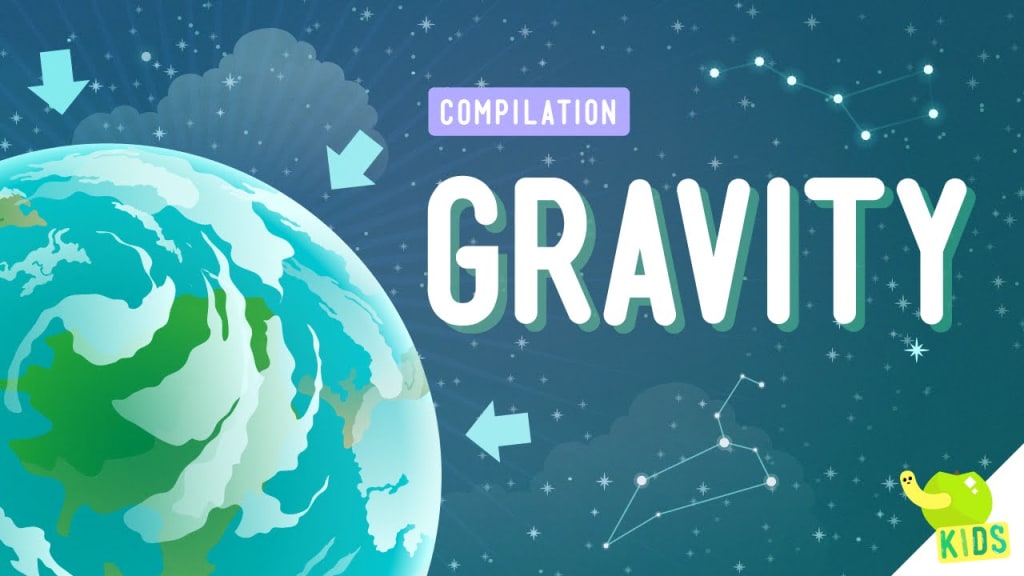
What else does gravity do?
Why do you land on the ground when you jump up instead of floating off into space? Why do things fall down when you throw them or drop them? The answer is gravity: an invisible force that pulls objects toward each other. Earth's gravity is what keeps you on the ground and what makes things fall.Anything that has mass also has gravity. Objects with more mass have more gravity. Gravity also gets weaker with distance. So, the closer objects are to each other, the stronger their gravitational pull is.
Earth's gravity comes from all its mass. All its mass makes a combined gravitational pull on all the mass in your body. That's what gives you weight. And if you were on a planet with less mass than Earth, you would weigh less than you do here.
Gravity in our universe
Gravity is what holds the planets in orbit around the sun and what keeps the moon in orbit around Earth. The gravitational pull of the moon pulls the seas towards it, causing the ocean tides. Gravity creates stars and planets by pulling together the material from which they are made.
Gravity not only pulls on mass but also on light. Albert Einstein discovered this principle. If you shine a flashlight upwards, the light will grow imperceptibly redder as gravity pulls it. You can't see the change with your eyes, but scientists can measure it.
Black holes pack so much mass into such a small volume that their gravity is strong enough to keep anything, even light, from escaping.
Gravity on Earth
Gravity is very important to us. We could not live on Earth without it. The sun's gravity keeps Earth in orbit around it, keeping us at a comfortable distance to enjoy the sun's light and warmth. It holds down our atmosphere and the air we need to breathe. Gravity is what holds our world together.
However, gravity isn’t the same everywhere on Earth. Gravity is slightly stronger over places with more mass underground than over places with less mass. NASA uses two spacecraft to measure these variations in Earth’s gravity. These spacecraft are part of the Gravity Recovery and Climate Experiment (GRACE) mission.gravity, also called gravitation, in mechanics, the universal force of attraction acting between all matter. It is by far the weakest known force in nature and thus plays no role in determining the internal properties of everyday matter. On the other hand, through its long reach and universal action,it controls the trajectories of bodies in the solar system and elsewhere in the universe and the structures and evolution of stars, galaxies, and the whole cosmos. On Earth all bodies have a weight, or downward force of gravity, proportional to their mass, which Earth’s mass exerts on them. Gravity is measured by the acceleration that it gives to freely falling objects. At Earth’s surface the acceleration of gravity is about 9.8 metres (32 feet) per second per second. Thus, for every second an object is in free fall, its speed increases by about 9.8 metres per second. At the surface of the.The works of Isaac Newton and Albert Einstein dominate the development of gravitational theory. Newton’s classical theory of gravitational force held sway from his Principia, published in 1687, until Einstein’s work in the early 20th century. Newton’s theory is sufficient even today for all but the most precise applications. Einstein’s theory of general relativity predicts only minute quantitative differences from the Newtonian theory except in a few special cases. The major significance of Einstein’s theory is its radical conceptual departure from classical theory and its implications for further growth in physical thought.





Comments
There are no comments for this story
Be the first to respond and start the conversation.